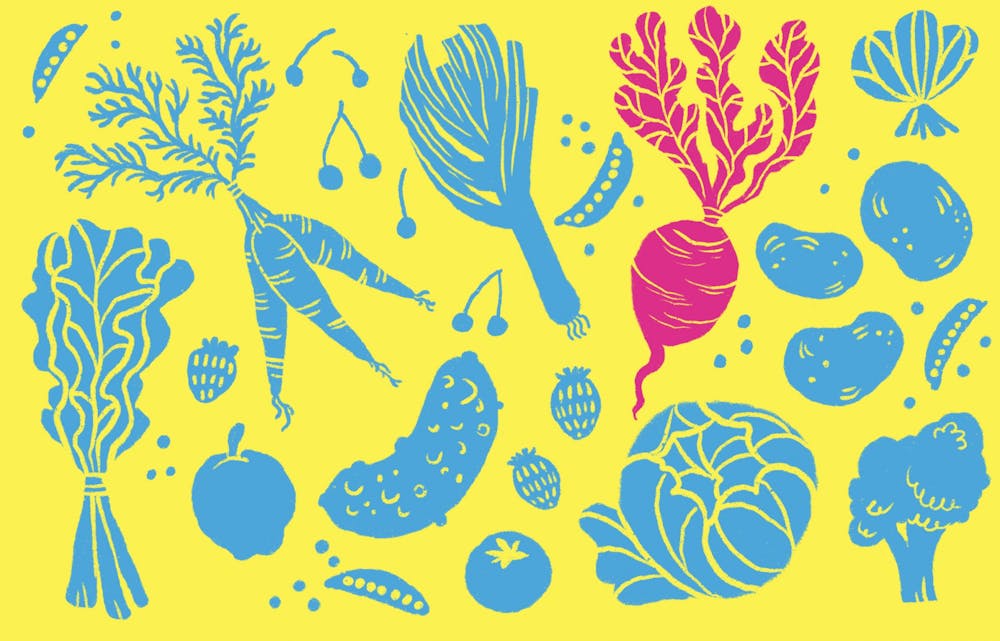Bellingham businesses and farmers are getting ready to welcome more customers back in person by emphasizing that residents eat locally.
Eat Local First is a well-established program in Washington State, but the program has gained more significance now because of the new decline in cases of the Omicron variant. Eat Local First was started in 2011 by the Sustainable Connections Food and Farming Program, with the main goal of encouraging Washington residents and visitors to choose local food first.
Local food is defined by Sustainable Connections as food that is grown, raised, caught or made in Washington State, but most importantly it signifies an area where people could know their farmer.
The Eat Local First program supports over 90 businesses in Bellingham including the Bellingham Farmers Market. The market returns on the third Saturday of Jan., Feb., and Mar., with the next market coming Saturday, Feb. 19, which will have a COVID-19 mask requirement as a safety policy. This comes before new statistics show COVID-19 cases and hospitalization declining in recent days.
Washington State Governor Jay Inslee announced on Feb. 9 that the outdoor mask mandate will be lifted on Feb. 18. Residents of Washington State should still be vigilant though, as the Washington State Department of Health announced on Wed., Feb. 9, that they’re experiencing slowdowns in their data systems.
“Eating local is a way of giving back to your community, supporting a secure food system at the local level and getting culinary inspiration from seasonal produce,” said Annika Sampson, spokesperson for Sustainable Connections. “Compare and contrast the mileage from your local farmers market with the national average of 1,500 miles – that’s the average distance food travels before it ends up on your table.”
Farmer’s Markets, such as the Bellingham Farmers Market, provide a space for local crafts and food to be sold to visitors and residents alike. Vendors in the market will have a chance to sell their products to the community in a safe space.
Local food vendors, such as Bry’s Filipino Cuisine, faced many hardships over the last two years like limited space for vendors because of social distancing measures. Also, fewer customers and customer interaction due to people not being allowed to eat at the market.
“Last year all the food that I sold was all in to-go boxes because no one was allowed to eat at the market,” said Bryan Cademas, owner of Bry’s Filipino Cuisine. “Keeping our farmers and small business owners thriving by giving the community a convenient and enjoyable way to support them on a weekly or monthly basis is so important.”
Eating local doesn’t only apply to just locally owned businesses, it can also apply to local businesses that are corporately owned. And people can support local businesses through spending money at businesses that employ local people.
“Spending money with locally owned businesses is vital to community success,” said Guy Occhiogrosso, President/CEO of the Bellingham Regional Chamber of Commerce. “Those dollars stay here through taxes, employee wages, and local owners. Additionally, businesses that may be corporate-owned are still local to some degree when you consider they are employing local employees and pay taxes.”
Whether it be the Bellingham Farmers Market, a local grocery store or a locally owned business, residents and visitors can support the Bellingham community in a number of ways.
“[As] long-time volunteers always say, ‘you do business with people you know, like, and trust.’ And this is what we hope to create through our connection and networking opportunities,” concluded Occhiogrosso.
Kieran Bresnahan is a city news reporter studying visual journalism at WWU. He enjoys writing about education and local businesses and taking photos of local events.






